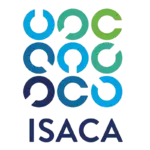The Certified Cloud Security Professional (CCSP) certification is a globally recognized credential that validates expertise in cloud security and demonstrates a commitment to best practices in securing cloud environments. This comprehensive guide provides an in-depth overview of the CCSP certification requirements, including the target audience, prerequisites, and the steps to achieving this prestigious credential.
Understanding the CCSP Certification:
The CCSP certification, developed jointly by the International Information System Security Certification Consortium (ISC²) and the Cloud Security Alliance (CSA), is designed for professionals who possess advanced skills in cloud security architecture, design, operations, and service orchestration. It validates their ability to secure cloud environments and protect sensitive data.
clslearn offers you the best courses in the course of Certified Cloud Security Professional CCSP
Who Can Benefit from a CCSP Certification?
The CCSP certification is ideal for professionals who work in roles such as cloud security architects, security consultants, IT managers, security auditors, and system engineers. Individuals seeking to enhance their knowledge and expertise in cloud security and expand their career opportunities within the field will greatly benefit from obtaining the CCSP certification.
CCSP Certification Requirements:

To pursue the CCSP certification, candidates are required to meet specific prerequisites. These requirements ensure that candidates have the necessary background and experience to excel in the field of cloud security. The primary CCSP certification requirements include:
- Work Experience: Candidates must have a minimum of five years of cumulative paid work experience in information technology (IT), with three years of experience in information security and one year of experience in one or more of the six domains of the CCSP Common Body of Knowledge (CBK). Alternatively, candidates can substitute an existing certification, such as the Certified Information Systems Security Professional (CISSP), to fulfill one year of the required experience.
- CCSP Exam: Candidates must pass the CCSP exam, which covers the six domains of the CCSP CBK. The exam evaluates candidates’ knowledge and understanding of cloud computing concepts, cloud data security, cloud platform and infrastructure security, cloud application security, operations, and legal and compliance issues in the cloud.
Steps to Achieving the CCSP Certification:
To obtain the CCSP certification, candidates should follow these steps:
Familiarize Yourself with the CCSP CBK:
Thoroughly review the CCSP CBK, which outlines the knowledge domains tested in the exam. This provides a comprehensive understanding of the subject matter and helps candidates identify areas where they may need further study.
Prepare for the CCSP Exam:
Utilize study resources, such as official CCSP study guides, practice exams, and online training courses, to prepare for the CCSP exam. These resources help candidates solidify their knowledge and test their understanding of the CBK domains.
Schedule and Take the CCSP Exam:
Once adequately prepared, candidates can schedule the CCSP exam through the ISC² website or authorized testing centers. The exam consists of multiple-choice questions and must be completed within the allotted time frame.
Maintain Your CCSP Certification:
After successfully passing the CCSP exam, certified professionals must adhere to the ISC² continuing professional education (CPE) requirements to maintain their certification. This involves earning a specific number of CPE credits annually and paying the annual maintenance fee.
clslearn offers you the best courses in the course of CCSK Certificate of Cloud Security Knowledge
Some additional information about the CCSP certification:
CCSP Common Body of Knowledge (CBK):
The CCSP CBK serves as the foundation for the certification exam. It consists of six domains that cover the essential knowledge areas for cloud security professionals.
These domains include:
Domain 1: Architectural Concepts and Design Requirements
Domain 2: Cloud Data Security
Domain 3: Cloud Platform and Infrastructure Security
Domain 4: Cloud Application Security
Domain 5: Operations
Domain 6: Legal, Risk, and Compliance
Candidates preparing for the CCSP exam should thoroughly study each domain to ensure they have a comprehensive understanding of the subject matter.
Study Resources:
To prepare for the CCSP exam, candidates can access a variety of study resources. These include official study guides provided by ISC², practice exams, online training courses, and reference books. These resources help candidates review the CBK domains, test their knowledge through sample questions, and deepen their understanding of cloud security concepts.
CCSP Exam Format:
The CCSP exam consists of multiple-choice questions and must be completed within a specified time frame. The exam evaluates candidates’ knowledge and comprehension of the CCSP CBK domains, as well as their ability to apply that knowledge in real-world scenarios. Candidates need to understand the exam format, manage their time effectively, and answer questions accurately.
Get to know about ENHANCING CYBERSECURITY WITH SOC AS A SERVICE (SOCAAS)
Continuing Professional Education (CPE) Requirements:
Once certified, CCSP professionals are required to meet the continuing professional education (CPE) requirements set by ISC² to maintain their certification. This involves earning a specific number of CPE credits annually, which can be obtained through activities such as attending security conferences, participating in relevant training programs, writing articles or white papers, and contributing to the cloud security community.
Value and Career Opportunities:
The CCSP certification is highly regarded in the industry and demonstrates a professional’s expertise in cloud security. It can enhance career prospects and open doors to various job opportunities, including cloud security architect, security consultant, cloud security manager, and more. The certification validates the ability to design, implement, and manage secure cloud environments, making CCSP professionals valuable assets to organizations adopting cloud technologies.
Professional Networking:
The CCSP certification offers professionals the opportunity to connect with a global community of cloud security experts. ISC², as well as other industry organizations and events, provide platforms for networking, knowledge sharing, and staying updated with the latest trends and advancements in cloud security. Engaging with this community can further professional growth and provide valuable insights into the evolving field of cloud security.
It’s important to note that the CCSP certification requirements and associated details may be subject to change. It’s advisable to refer to the official ISC² website or consult with authorized training providers for the most up-to-date information regarding the CCSP certification process.
What are the passing criteria for the CCSP exam? Is there a minimum score required?

The passing criteria for the CCSP exam are determined by the International Information System Security Certification Consortium (ISC²), the organization that administers the exam. However, ISC² does not publicly disclose the exact passing score or provide specific information about the minimum score required to pass the CCSP exam.
The CCSP exam is a computer-based test consisting of multiple-choice questions. The questions are weighted differently based on their complexity and relevance to the CCSP Common Body of Knowledge (CBK) domains. The exam is scored on a scaled basis, and the final score is calculated using a proprietary algorithm.
After completing the exam, candidates receive a pass or fail result immediately. Candidates who pass the exam do not receive their specific numerical score, while those who do not pass receive a diagnostic report indicating the performance level in each exam domain.
It’s important to note that the CCSP exam is designed to assess a candidate’s overall competence in cloud security rather than focusing on achieving a specific numerical score. The emphasis is placed on understanding the concepts, applying knowledge to real-world scenarios, and demonstrating proficiency in the CCSP CBK domains.
To increase the chances of passing the CCSP exam, it is recommended that candidates thoroughly study the CCSP CBK domains, utilize official study guides and practice exams, and gain practical experience in cloud security. By adequately preparing and having a solid understanding of the subject matter, candidates can position themselves for success on the exam.
Conclusion:
The CCSP certification is a valuable credential that showcases expertise in cloud security and opens doors to exciting career opportunities. By understanding the CCSP certification requirements, professionals can plan their certification journey, gain the necessary experience, and prepare effectively for the exam. Achieving the CCSP certification demonstrates a commitment to cloud security best practices and positions individuals as trusted experts in securing cloud environments.
























